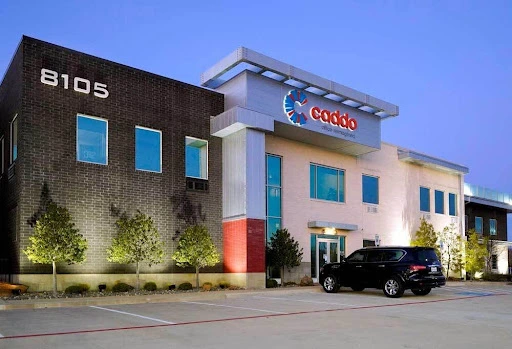What Is a Business Phone System?
A business phone system is a communication platform for businesses, offering features such as unlimited calling, automated menus, ring groups for calling multiple employees simultaneously, voicemail-to-email functionality, and call recording. There are different types of business phone systems, including Voice over Internet Protocol (VoIP), private branch exchange (PBX), and key system unit (KSU). Small businesses often use VoIP technology, which utilizes the business’s internet connection for the entire system. Business phone systems are continuously evolving to encompass text, voice, and video communications, as well as collaboration among hybrid and remote team members.
Here are some of the top small business phone systems of 2024:
– Vivant Phone: Ideal for SME businesses
– RingCentral: Great for Collaboration
– Zoom: Excellent for Video Conferencing
– Vonage: Best for APIs and Customization
– Ooma: Perfect for Small Businesses
– Dialpad: Ideal for Voice Intelligence
– GoTo Connect: Perfect for Remote Teams
– Grasshopper: Best Virtual Phone System
– 8×8: Ideal for International Businesses
– Net2phone: Great for Scaling Businesses
Voice over Internet Protocol (VoIP) phone systems are increasingly essential in modern business settings, serving as central hubs for unified communications across voice, chat, and video. These cloud-based phone systems have largely replaced traditional landlines in business settings due to their advanced features, accessibility, and cost-effectiveness. Most business phone providers offer essential features such as a phone number, voicemail, call routing, and unlimited voice calls to the United States. However, services vary widely, with some offering advanced features that use artificial intelligence (AI) to automatically prepare and send meeting summaries with action items after each call.
Whether you’re a small business that communicates with a few clients a week or a large business with a sales team that spends most of the day on the phone, there’s a system tailored to your needs. The following reviews of the best small business phone systems will help you determine which solution is most effective for your needs and suitable for your budget.
Choosing the Right Business Phone System for Your Small Business
Compare Our Best Picks
Vivant
Vivant is a unified Phone System that seamlessly integrates communications with business applications, intelligence, and automation. It empowers businesses to enhance communication and forge stronger customer connections with 100% guaranteed uptime. The platform consolidates various communication channels – voice, collaboration, call deflection, chat, and more – streamlining information access for improved business outcomes. With built-in intelligence and automation, Vivant enables a customer-focused approach, allowing you to prioritize customer support.
Advanced Features
- Unlimited Voicemail
- Voicemail to Email
- Call Recording
- 3-Way Calling
- Missed Call Text Back
- Call Parking
- Customized Ring Groups
- Nationwide Coverage and more.
RingCentral
RingCentral MVP is a business communications app with cloud messaging, AI video communications, and a VoIP phone system. It supports multi-level IVR, call monitoring, call queues, and various business phone numbers from area codes worldwide. The app is well-priced, with unlimited team collaboration rooms that include task management and file sharing.
Zoom Phone
Zoom Phone is a complete VoIP phone system for business with team chat, call monitoring, call queues, IVR, and call analytics on each plan. The platform also offers the option for per-minute payment or unlimited domestic calling in a country outside the US.
Vonage
Vonage’s Business Communications platform offers a desktop and mobile app with VoIP calling, video meetings, team chat, and SMS. Users can make unlimited calls and texts within the US, Canada, and Mexico, and access basic routing features like IVR, analytics, and call groups.
Ooma
Ooma Office is an excellent solution for companies switching from a traditional office phone system to a cloud-hosted service. It supports landline desk phones, analog fax machines, and overhead paging systems.
Dialpad
Dialpad’s business phone service uses artificial intelligence to help small teams get more out of every conversation. AI-powered tools transcribe calls in real-time and generate summaries.
GoTo Connect
GoTo Connect is a business phone system with cloud-based voice, video, and chat messaging. It offers easy call distribution and smart call routing.
Grasshopper
Grasshopper is a simple business phone system with just calling and SMS, suitable for solopreneurs and small teams. It supports unlimited texting in the US.
8×8
8×8 offers local numbers all over the world and unlimited calling to 48 countries. Subscribers can mix and match between plans, providing employees and teams with the appropriate level of service.
net2phone
Net2phone provides scalable, highly customizable phone system solutions for businesses of all sizes across industries, tailored for various industries and types of businesses.
This table summarizes the pros and cons of each business phone system provider, highlighting key features and potential drawbacks for businesses considering these options.
| Business Phone System Providers | Pros | Cons |
|---|---|---|
| Vivant |
|
|
| RingCentral |
|
|
| Zoom Phone |
|
|
| GoTo Connect |
|
|
| 8×8 |
|
|
| Dialpad |
|
|
| Vonage |
|
|
| Ooma |
|
|
| Grasshopper |
|
|
| net2phone |
|
|
Business Phone System Features
Today’s business phone systems provide numerous valuable features for small businesses. Cloud-hosted systems have made it possible for small businesses to access a wide range of features without requiring a large investment. In the past, only larger businesses could afford feature-rich systems due to the capital needed for equipment installation. Fortunately, this is no longer the case. Here are some key functions to consider.
- Unlimited calling: Many cloud-hosted VoIP phone systems offer domestic calling to the United States and Canada at no extra cost, providing a fixed monthly service cost regardless of call volume.
- Automated attendants: Auto attendants answer calls to your business and direct them to the appropriate employees or departments.
- Ring groups: This feature allows you to group employees so that when someone calls needing assistance from a specific group, such as customer service, all employees’ phones will ring. You can choose for phones to ring in a specific order or simultaneously.
- Voicemail: In addition to traditional voicemail service, many business phone systems offer voicemail-to-email functionality, sending audio recordings or transcripts of voicemails to an employee’s email for easy access.
- Call recording: This feature enables call recording, with recordings stored in the cloud or on your computer for playback later.
Other valuable features offered by many business phone systems include extension dialing, call forwarding, call queues, and integrations with services like Microsoft Office and Google Workspace. Some platforms also provide collaboration tools such as video conferencing, instant messaging, presence indicators, and online meetings.
Unified Communications Solutions
When choosing a business phone system, consider:
- The system’s features and whether they meet your business needs.
- The a need for standard or advanced functions like ring groups, automated attendants, and on-hold music.
- The possibility of a unified platform that includes video conferencing and instant messaging.
- The system’s reliability and uptime percentage. If it’s not 99.999%, ask about the provider’s plans to improve.
- Whether an on-premises system, which has higher upfront costs but fewer ongoing fees, is a better fit than a cloud-hosted system.
- For small businesses or those with remote workforces, a virtual phone system might be suitable. It connects a main business number to employees’ mobile phones.
- The types of customer support offered by the phone company, especially if you don’t have a dedicated IT manager or tech-savvy employees.
Types of Business Phone Systems
Choosing a business phone system involves considering the equipment location, connection type, and cost structure. Here are some options:
- Landline: Traditional systems using local phone company connections and on-site PBX equipment. Requires significant upfront costs and ongoing maintenance.
- VoIP: Uses internet connections for calls. Two types exist:
- Cloud-hosted VoIP: PBX equipment is in the cloud, and maintained by the provider. Users plug IP phones into their network. Costs are typically monthly per-user fees.
- On-premises VoIP: PBX equipment is on-site, and maintained by the business. It offers more control but requires a large upfront investment and smaller monthly fees.
- Virtual Phone System: No equipment is needed. Calls to the main business number are routed to employees’ mobile phones. Only monthly fees apply.
Advantages of Business Phone Systems
Modern business phone systems, especially cloud-based ones, offer several advantages:
- Versatility: They support not just calls, but also video conferencing, team messaging, SMS, and online faxing. They can integrate with popular business software and CRM platforms for comprehensive communication management.
- Flexibility: Employees can take calls on any internet-connected device, ensuring efficient call routing and receipt.
- Quality Assurance: Despite concerns about internet connection quality, cloud-based phones match landline systems in audio quality and reliability, with the best provider offering 100% uptime. Many also provide quality-of-service reporting for each call.
Conclusion
In conclusion, selecting the best phone system for your small business in 2024 involves careful consideration of your unique needs, priorities, and budget. The evolution of business phone systems, particularly the widespread adoption of Voice over Internet Protocol (VoIP) technology, has empowered businesses with versatile communication solutions. Whether you prioritize collaboration, video conferencing, voice intelligence, or international connectivity, there are tailored options available.
Frequently Asked Questions (FAQs)
Which kinds of businesses benefit most from a good phone system?
Businesses that benefit most from a good phone system are those with a high volume of calls and a need for efficient call management. This includes customer service-oriented businesses, sales-focused companies, and those with remote or distributed teams.
What is unified communication?
Unified communication refers to the integration of various communication methods within a business, such as voice, video, messaging, and data sharing. It aims to streamline communication and improve collaboration by bringing together different tools and channels into a single platform.
What is the best business phone system?
The best business phone system depends on the specific needs of the business. Factors to consider include the company’s size, the nature of its operations, the volume of calls, and the level of integration with other communication tools.
When is the best time to invest in a good phone system for your business?
The best time to invest in a good phone system for your business is when you notice inefficiencies in your current system, experience growth that strains your existing communication infrastructure, or when you are expanding to new locations.
What is the difference between a business phone service and a business phone system?
A business phone service typically refers to the actual service provider that offers the means to make and receive calls, while a business phone system encompasses the hardware and software that enable call management, voicemail, and other features within a business.
What are the main differences between phone systems for small businesses and phone systems for large businesses?
The main differences between phone systems for small businesses and large businesses lie in scale, complexity, and feature sets. Small business systems are often simpler, more cost-effective, and may focus on essential features, while larger businesses require more advanced capabilities, scalability, and integration with other business tools.
How much does a phone system cost for small businesses?
The cost of a phone system for small businesses can vary widely based on factors such as the number of users, required features, and whether the system is hosted on-site or in the cloud. Generally, costs can range from a few hundred to a few thousand dollars.
How do you set up a small business phone system?
Setting up a small business phone system involves selecting a suitable provider, determining the necessary features, setting up the hardware (if applicable), configuring the system, and training employees on its use.
Who benefits most from VoIP office systems?
VoIP office systems benefit businesses with remote workers, multiple locations, or a need for cost-effective and flexible communication solutions. They offer features like virtual extensions, video conferencing, and integration with other business applications.
Can you use a VoIP phone as a regular phone?
Yes, a VoIP phone can be used as a regular phone. In addition to making and receiving calls, VoIP phones can offer additional features such as voicemail, call forwarding, and conferencing, making them suitable for everyday use in business settings.




